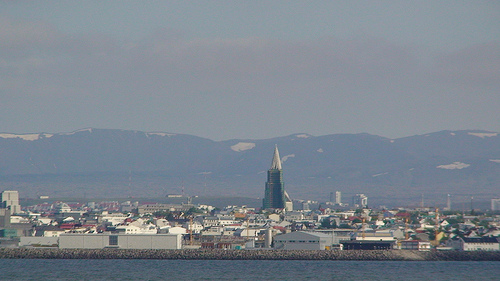Ever since the UN described it as the third-best place in the world to live in, Iceland has become a dream destination for many expats from around the world. There are currently about 15,000 immigrants working in this country. Even though it has had some recent economic struggles, Iceland’s living standards remain very high. The fact that this region has a low unemployment rate (less than 6%) with fairly high wages makes it all the more attractive to many foreigners.Below are a few suggestions for expats seeking job opportunities in Iceland.
Learn the language
While it is true that most of the locals speak English, basic knowledge of Icelandic is important in the professional world. Higher fluency in the language considerably increases the chances of gaining employment. Unfortunately, Icelandic is one of the most difficult languages to learn and master. It is therefore best for you to take up a course in your home country and practice conversing as much as possible.
Make a trip as a visitor first
Finding employment gets easier when you are present in the country; scheduling interviews and screening rounds becomes a lot more feasible. It is therefore best for you to first visit Iceland on a tourist visa while you look for a job. Don’t forget to mention your residency and work permit requirements to your future employers during the application stage.
Identify your industry
Apart from fishing, which accounts for 40% of the country’s exports and 12% of its GDP, several key industries thrive in Iceland. These include agriculture, aluminum smelting, finance, biotechnology, software development, power production, hospitality and tourism.
A degree or some certification in one of these vocations would definitely help you find a job faster. The health and education sectors are also on the lookout for skilled and trained professionals.
Look for companies in Iceland that may hire people with your skills and go through the career opportunities posted on their website. You can fill in an online application and the organization will get in touch with you directly, if your profile matches their requirements.
Target the right avenues
People who are already in Iceland generally go through the job vacancy ads placed in the newspapers to learn about the various openings. Fortunately, those who live overseas also have access to the latest job listings through online sources.
While there are many good websites that you can refer to, the most popular one is the EURES Job Mobility Portal, which lists all vacancies from the Public Employment Service. Registering with the site and applying for a particular position is quite easy. The main challenge is that most of the posts are in the local language. Other websites that are also quite popular with foreigners include www.job.is, www.jobs.goabroad.com and www.eurojobs.com.
Proper networking is essential when it comes to looking for a job. Many expats believe that personal connections are more effective than applying through consultants. If you know people living in Iceland, keep getting regular updates about the job market and opportunities available from them.
Avoid teaching English
A majority of the younger population is quite fluent in English and therefore there is a low demand for native English teachers. Some of the international schools may hire foreigners (only if they have the required paperwork in place) to teach English, but competition is steep for these roles and the salaries are often not as high as in other industries.
Consider the visa and immigration formalities
Before deciding to take up a job in Iceland, remember that work permits are required for citizens of most countries, except the Nordic ones (Sweden, Norway, Denmark, Greenland, Finland, Faroe Islands and Aland Islands). After securing an offer or a contract, you will need to apply for an employment visa. You are not allowed to start working in the country until you get your permit, which could take up to 90 days. Immigration policies are strict and several documents need to be submitted in order for the paperwork to be processed. Foreigners are generally only granted a work visa if they possess special education or skills that cannot be found within the local population. A work permit is not issued to professionals who take up short-term assignments in Iceland.
Fortunately, Iceland hasn’t applied restrictions on labor market access by citizens of EEA countries, including the new EU members. This means that citizens from the EU and EEA do not require a work permit for the first six months. They should however officially register their relocation plans and seek further assistance if required.
(Sources: http://goscandinavia.about.com/od/icelan1/qt/jobsiniceland.htm and http://www.iceland.is/the-big-picture/people-society/work-and-live).
Can we improve this article? Something wrong? Let us know!

